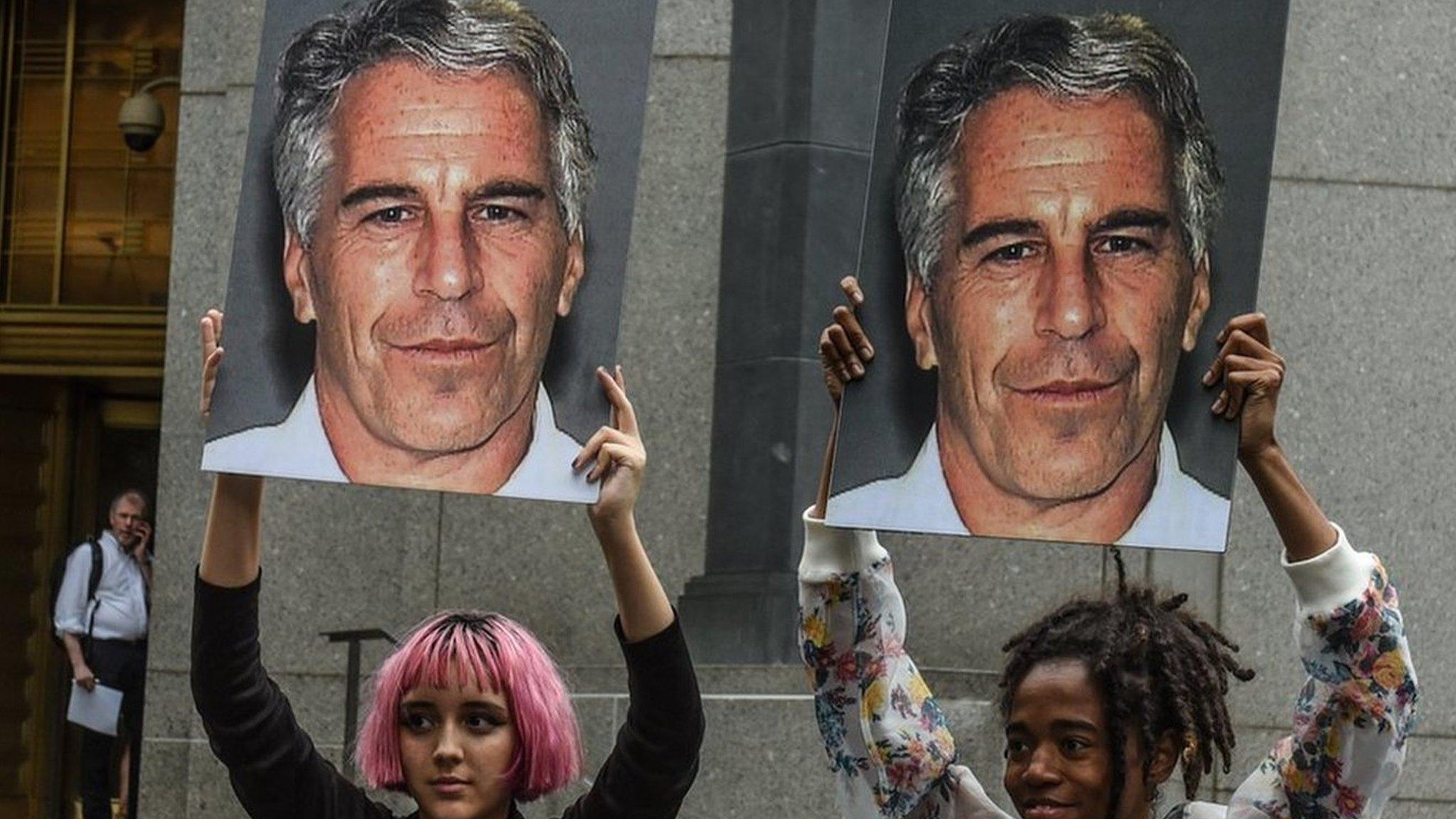US Labour Secretary Alex Acosta resigns over Epstein case
- Published
Trump on Acosta resignation: 'This was him not me'
US Labour Secretary Alex Acosta is resigning amid criticism of his role in a 2008 plea deal for financier Jeffrey Epstein in a child sex case.
Mr Acosta, a former Florida prosecutor, made the announcement from the White House lawn on Friday with President Donald Trump stood by his side.
Democrats had called for him to quit over his handling of the Epstein case.
Epstein is now being held on sex trafficking and conspiracy charges. He has pleaded not guilty, and wants bail.
His lawyers argue that he should be held under house arrest at his Manhattan home until he goes to trial.
But prosecutors want him to remain in prison, and on Friday evening they alleged that Epstein paid $350,000 to two potential witnesses in the case late last year in an effort to influence them.
What did Mr Acosta do in 2008?
Mr Acosta was the US Attorney in Miami in 2008 when he oversaw a non-prosecution deal against Epstein which allowed Epstein to serve 13 months in jail - with much of that time spent on work release at his Palm Beach office. Epstein's conduct has come into sharper focus since he was arrested and charged on Monday with sex trafficking underage girls.
Mr Acosta defended the secretly-negotiated plea deal in a news conference only two days ago.
Mr Trump told reporters that he and Mr Acosta spoke on the phone earlier on Friday and that it was Mr Acosta's decision to step down.
"This was him not me," Mr Trump said, adding that Mr Acosta was "a tremendous talent" who "went to Harvard" University. Earlier this week, Mr Trump told reporters that he felt badly for his labour secretary, but added that he did not know him personally before hiring him.
On Tuesday, Mr Trump distanced himself from Jeffrey Epstein - and defended the role of Alex Acosta
Mr Acosta told reporters: "I do not think it is right and fair... to have Epstein as the focus rather than the incredible economy that we have today".
But he added: "It would be selfish for me to stay in this position and continue talking about a case that's 12 years old."
Patrick Pizzella, the current labour deputy secretary, will become acting secretary when Mr Acosta officially steps down in one week, Mr Trump said.

On Wednesday, Alex Acosta gave a dispassionate, legalistic defence of his handling of the Jeffrey Epstein case, more than a decade ago. It wasn't enough to save his job. Given how quickly he departed after his performance, it wasn't even close.
The former US attorney attempted to shift blame to state prosecutors and justify his decisions based on changing expectations in sex crimes cases. He never adequately explained why the circumstances at the time required that he offer such a lenient deal to Epstein or seal the damning details of the original indictment, instead of building a stronger case with further investigation.
The Epstein case is a perfect storm of scandal and outrage. It mixes allegations of sex crimes with abuse of power and influence reaching into the highest corridors of US political and financial power.
Now the toxic swirl has claimed its first high-profile name. Depending on how the story evolves, Mr Acosta may not be the last.
With his departure, the number of temporary, "acting" Cabinet-level positions in the Trump administration now stands at four out of 11. The level of churn in his administration, whether through scandal, burn-out or presidential disfavour, is extraordinary.

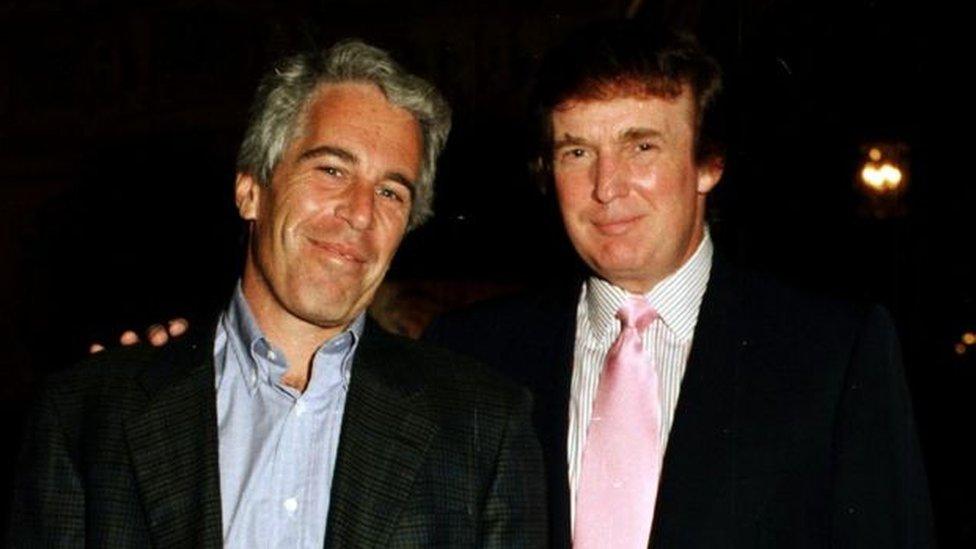
Jeffrey Epstein, left, with Donald Trump at the current president's Mar-a-Lago estate in Florida in 1997
Who is Jeffrey Epstein?
The 66-year-old wealthy financier was charged with running a sex ring of underage girls after being arrested in New Jersey on Monday. He has long been surrounded by the rich and powerful, including President Trump, former President Bill Clinton and the UK's Prince Andrew.
In a 2002 magazine profile, he said: "I invest in people, be it politics or science. It's what I do."
On Friday, Mr Trump reiterated "I'm not a fan of Jeffrey Epstein" after earlier saying they had a falling out "12 or 15 years ago" with him. "I threw him out of a club. I didn't want anything to do with him," Mr Trump said about this former friend, as Mr Acosta stood at his side.
"It shows you one thing. I have good taste," he added.

How did Acosta defend the 2008 deal?
"I wanted to help them," Mr Acosta said of the 36 victims identified in the case against Epstein, during the hour-long press conference at the labour department on Wednesday.
"That is why we intervened," he said. "And that's what the prosecutors of my office did - they insisted that he go to jail and put the world on notice that he was and is a sexual predator."
Mr Acosta did not apologise for his handling of the case, saying only that the deal - which closed the FBI investigation into whether there were more victims or perpetrators - was a guarantee of jail time. He said that seeking a life sentence in a jury trial would have amounted to a "roll of the dice".
"We now have 12 years of knowledge and hindsight and we live in a very different world. Today's world treats victims very, very differently," he said.
What was Epstein's punishment?
The details of the agreement overseen by Mr Acosta were first revealed in a Miami Herald investigation earlier this year, with the newspaper saying that Epstein had been given "the deal of a lifetime".
It allowed Epstein to avoid federal charges, and instead serve 13 months in jail after pleading guilty to state charges including solicitation of prostitution (including one charge involving a minor under the age of 18).
Mr Acosta had been under pressure from Democrats to quit. A federal judge ruled that the deal violated the Crime Victims' Rights Act because Mr Acosta did not notify Epstein's victims of the arrangement.
The deal is also being scrutinised by the Department of Justice.
- Published15 December 2020
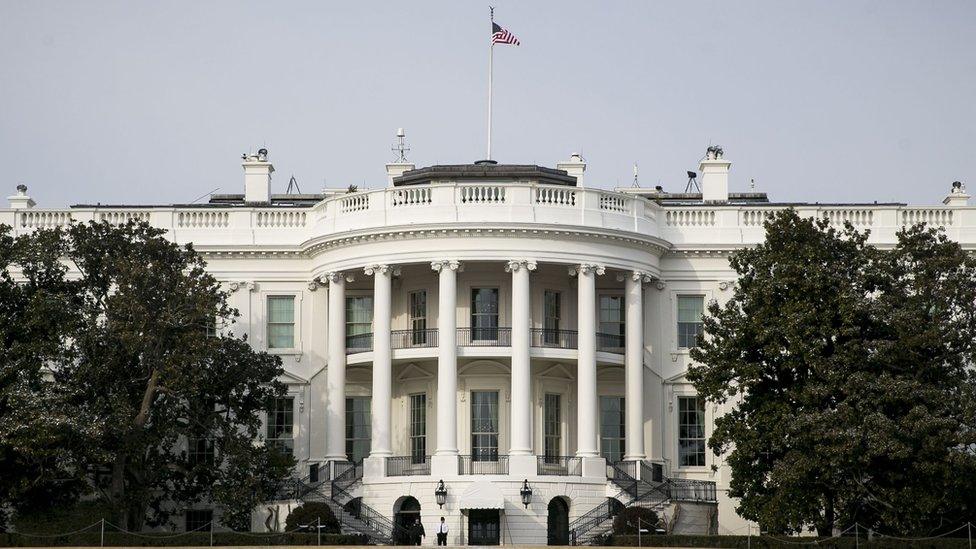
- Published9 July 2019
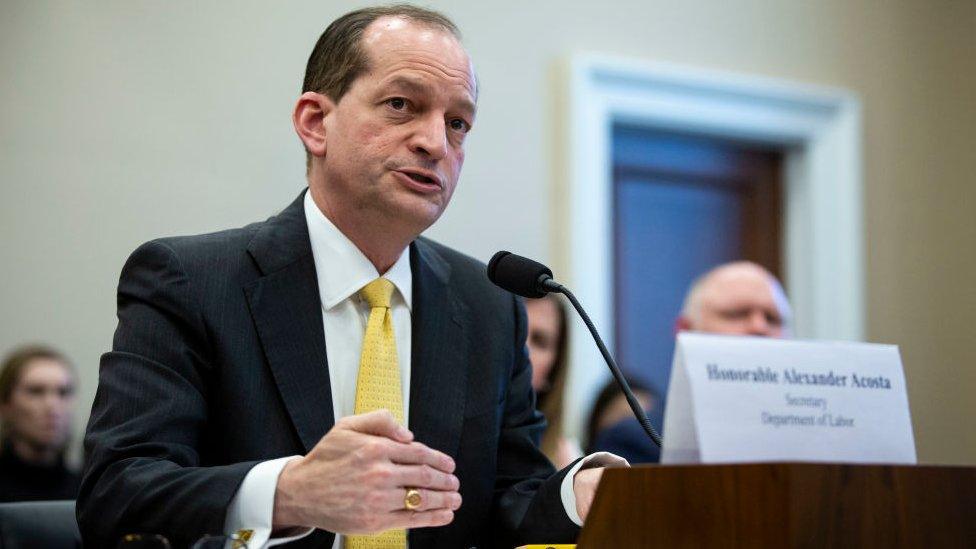
- Published10 July 2019
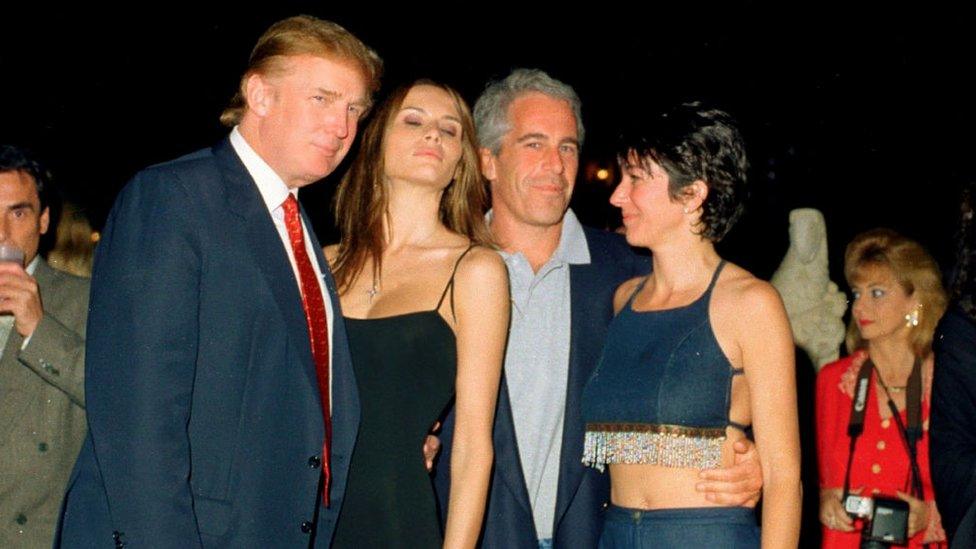
- Published3 January 2024
